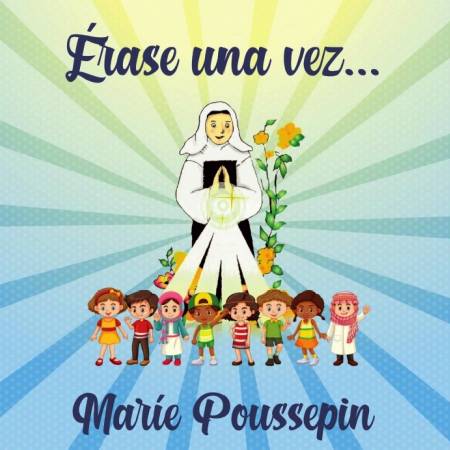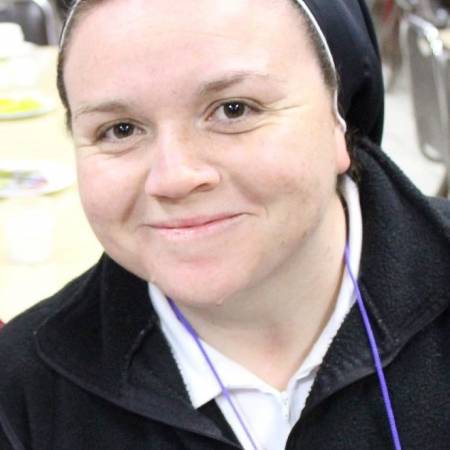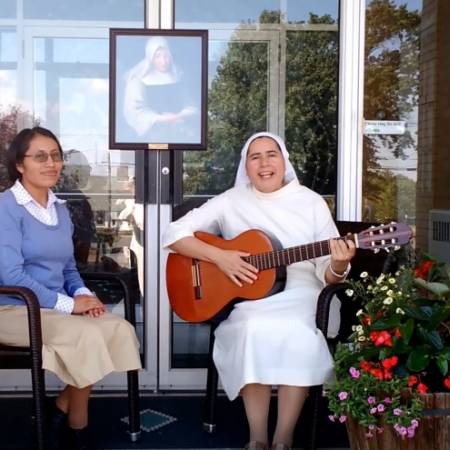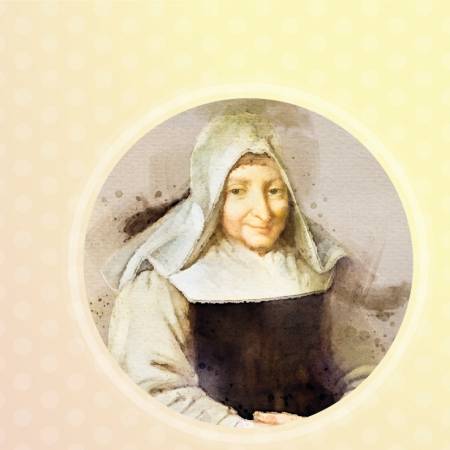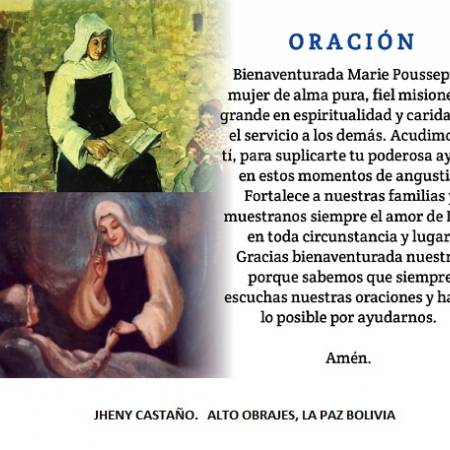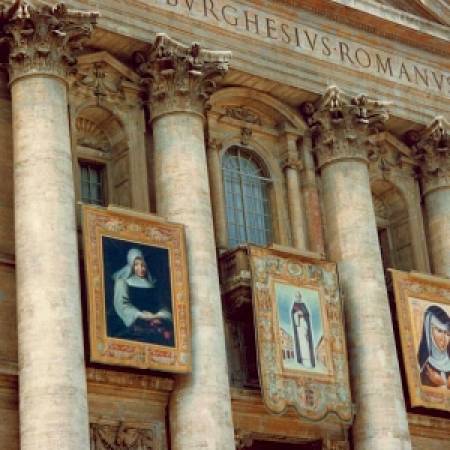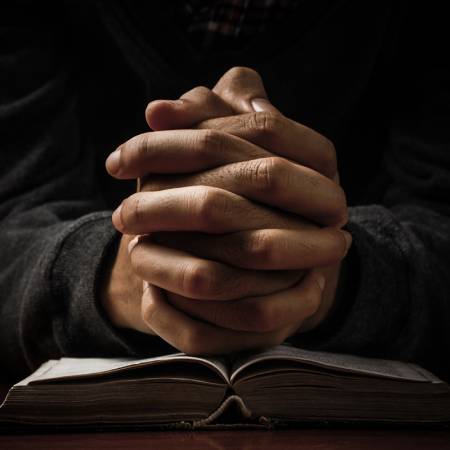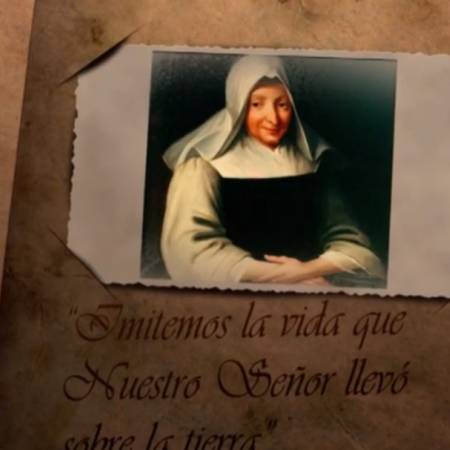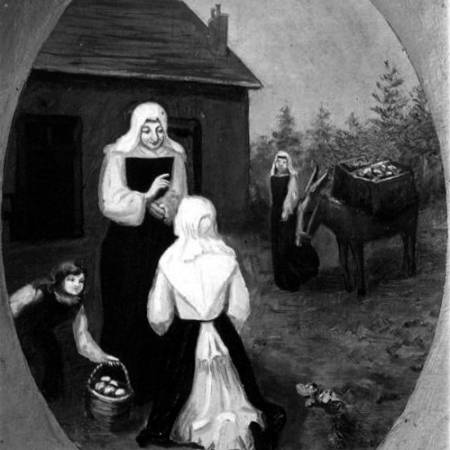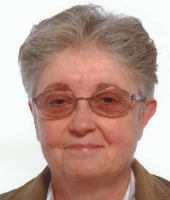DOWNLOAD IN PDF:
By SR. MARÍA DOLORES GARCÍA MAQUÍVAR* (SPAIN).- Caring for our “common home” seems to be, at first sight, a theme for our time, a theme very foreign to the mentality and the concerns of a woman who spent her life in a small geographical area, in the XVII and XVIII centuries in Europe. And without doubt, in its general plan and current perspective, it is so much a theme of today that we may ask ourselves whether there is any relationship at all between Marie Poussepin and a problem very strange to her time… whether in reality it was totally foreign to her time.
For sure, the physical look of Marie Poussepin did not go far beyond the grasslands, vines, forests, fields of cultivation and the rivers around her. But in her childhood, all these were not so peaceful, as it may seem to us today. Just after the end of the war of La Fronda, the fields remained as wastelands and all the land was damaged; people were impoverished and oppressed with sickness, hunger and sadness for those who were dead. At a very close look, depression, abuse and destruction of the land and the poor, were well known to her. Furthermore, it was the spiritual space in which she “saw what was right in the eyes of God and accomplished it.”
Since her childhood, the Confraternity of Charity made Marie Poussepin be in touch with the harder side of her environment and commit herself to it; as a Dominican Tertiary, contemplation and mercy, situated her in front of the beauty as well as the suffering of the creation.
“Marie Poussepin knew all that a woman of her milieu and time must know, but she was not seen to be interested in speculative studies. Her intelligence is first of all practical; it needs to shine through her action”[1].
With this reflection, taking the encyclical “Laudato Si” as a reference from the Church, let us search and find some elements and characteristics of the life and action, spirituality and Charism of Our Mother Foundress which can orient us today to care for our “Common Home.”
PRAISE
“Sing His praises wisely.”[2] In the Rule of Sainville, we find this element of praise in relationship with God, more concretely in prayer. The General Advices open us to a new perspective: “Keep the presence of God in all your actions…” The relationship with God who is close to all his creation and close to each person, is also expressed in action: the way of acting is through charity and service. The actions are respect, collaboration, gratitude and praise.
“In the beginning, when God created the heavens and the earth…God looked at everything he had made, and found it very good.”[3] “Rather than a problem to be solved, the world is a joyful mystery to be contemplated with gladness and praise.”[4]
In front of the beauty, complexity and harmony of the universe, spontaneously there spring up admiration, amazement, praise and thanksgiving, as we see them expressed and as we ourselves proclaim them and sing them in many of the psalms. It is not only a matter of nature, but also of human beings, with dignity and capacities that are given to us.[5] Without these attitudes that lead us to praise God and love creation, with hearts filled with joy and emotion, our words to talk about the “Common Home” can be perceived as something superficially added, an obligation imposed by others, a loss of time, or even as a heavy burden which does not serve for anything.
In every epoch, there co-exist the love for creation and the blind egoism that does not doubt to exploit it and destroy it. In our time, the contrast is especially powerful because of the great possibilities that are offered for the good and for the bad; globalization and the use of technologies become more and more powerful.
In the Word of God, we find already in the first book of the Bible, images and norms that the earth present to us like a living being who specifies the cares for which we are responsible: “For six years you may sow your field, and for six years prune your vineyard, gathering their produce. But during the seventh year the land shall have a Sabbath of complete rest, a Sabbath for the LORD.”[6] But also from very ancient time, we find in the Bible accounts of war techniques (Burning the forests and fields, sowing salt on the crops, poisoning the water sources), as well as warning signs of exploitation of the earth: “How long must the land mourn, the grass of the whole countryside wither? Because of the wickedness of those who dwell in it, beasts and birds disappear, for they say, “God does not care about our future.”[7]
We can question ourselves:
- Do admiration, thanksgiving and praise form part of our usual relationship with God?
- Do we recognize and value his footprint and his tenderness in nature and in human beings, and do these make us feel responsible for its care?
HUMILITY
The importance of humility for Marie Poussepin is very obvious by the privileged place that she dedicates to it in the Rule of Sainville: the third chapter, immediately after the aim of the community and the union of sisters among themselves. In the General Rules, she insists again with these words: “With regard to yourself, work above all at acquiring a deep humility.”
Some words of Pope Francis help us to situate ourselves in the society in which we live today and question ourselves with respect to this virtue. “Humility was not favorably regarded in the last century…Once we lose our humility, and become enthralled with the possibility of limitless mastery over everything, we inevitably end up harming society and the environment.”[8]
In the theme that we are treating, humility is translated as recognizing and living in the place belonging to human beings in the creation. We are neither owners of the earth nor can we treat it without care, with violence, exploiting her without foreseeing the consequences of our actions. “The best way to restore men and women to their rightful place, putting an end to their claim to absolute dominion over the earth, is to speak once more of the figure of a Father who creates and who alone owns the world. Otherwise, human beings will always try to impose their own laws and interests on reality.”[9]
In this sense, the care for the “Common Home” clamors for an ecological conversion of humanity as such and this change passes, at the same time, through a conscious conversion of each person, to recognize his/her place in the social ecosystem, in the family, neighborhood, parish and religious community. This conversion is not only in relationship with nature, but also in relationship with other persons, without imposing oneself on others and not using them for one’s benefit through violence or manipulation.
The self-centeredness, expression of egoism and haughtiness brings us not only to despise nature, but also to ignore and reject other persons and peoples, and especially the more vulnerable people. We cannot forget the intimate relationship between the poor and the fragility of the planet.[10]
For reflection:
- What does the importance given by Marie Poussepin for humility signify for us today?
- Are we aware of how the dominant mentality which tends to promote individualism and competition over the common good, influences us in our daily life?
WORK
Work is one of our family traits which all of us recognize as our own and which appears with clarity, throughout the life of Marie Poussepin. For her and for our first sisters, it was the means for survival and sharing with the poor; it was an expression of the dignity and abilities of the person, and also of collaboration with God, the creator in His work.[11] The simple work organized in the community facilitates economic independence and consequently, gratuity in our services. It does not speak about very brilliant works, but of knitting stockings, tending cows, cultivating the garden and the fields, spin the hemp, gather straw for the cows, wash, cook, clean and administer the home.[12]
The “mission”, outside the home, was also done in the same climate of simplicity: take care of the sick poor and teach the poor children of the countryside. For Marie Poussepin, teaching people to work to earn their livelihood in an honorable and dignified way, was always a basic work like an educator, both when she was a business woman and also when she was engaged in the formation of children.
The final basis for the position of Marie Poussepin in relation to work, is found in the example of Jesus, whom she desired to imitate. In the same way, Pope Francis reminds us: “Jesus worked with his hands, in daily contact with the matter created by God, to which he gave form by his craftsmanship. It is striking that most of his life was dedicated to this task in a simple life which awakened no admiration at all.”[13]
Our Foundress understood work as an important part of life, which contributes to the dignity of the person, with a human rhythm suitable for the individual capacities and circumstances. “In regard to the delicate sick persons, we could give them employment and work, proportionate to their strength, in order to withdraw them from idleness, without however overwhelming them.”[14] In her last testament we find love of work as a legacy to all of us.
However, we know well that now a days, in many places, work is seen more like an obligation to earn livelihood, without the meaning of collaboration for the common good and care for creation and without bringing personal satisfaction. The conditions of work, imposed by the accelerated depersonalized rhythm of the society, make it difficult to have serenity in personal life and the possibility to have sufficient time for family relationships and education of children. Wages are the subject of speculation, substituting machines for persons with less abilities or training, thus producing large sectors of the population which are marginalized, rejected, and ignored by the society as a whole.
The human environment and the natural environment are cared for or destroyed together. It is not possible to expect respect, concern and interest to take care and to improve the earth from those who do not respect or do not look for ways to care for and improve the working and living conditions of the poor.
We can ask ourselves:
- How do we understand and experience our work?
- Does our work have the same basis and meaning that Marie Poussepin had and the same connection with the service of the poor?
AUSTERITY AND CARE FOR LITTLE THINGS
In the community of Marie Poussepin, simplicity and poverty were harmonized through an austere life which was not rigid, sad or grey. Bodily penances were never spoken of, nor of deprivations apart from the usual sobriety. Without making it explicit, she had the example of Jesus very present to her, the example of Jesus who “ate and drank” and lived the meaning of celebration, by sharing what is simpler: bread, fish, wine…because for Him the joy of celebration does not consist in the excellence of what one eats and drinks, but at the table open to all.
These family traits are thus presented to us in the description of the life of the community of Sainville: “In due time, the Foundress will build “a very convenient home;” she will prescribe to all the Sisters to take adequate nourishment according to their needs. But she will resolutely keep away from anything smelling of luxury and indulgence, not only in furniture and food, but also in clothes and habits, ‘keeping within the limits of moderation befitting the poverty professed in this house’.”[15] At the same time it must be clear to the sisters that her austere life responds to a choice freely assumed, and that they must “beware never to believe that we recommend sobriety for the sake of economy.”[16]
Simplicity and poverty require care in the daily activities, care for the little details which expresses coherence. In “The Rule of Sainville,” cleanliness and vigilance are insisted on, so that nothing goes bad and nothing is lost, without desiring and looking for more than what is needed, always in relation to the common good and the specific needs of the persons. The simplicity and poverty of our first sisters were always oriented to offer services gratuitously to the poor. These attitudes and actions are essential today to adapt our customs as persons, groups and societies towards an ecological conversion which will be seen not only in the important actions at the boundary of daily life, but also in the small things of day to day life. “There is a nobility in the duty to care for creation through little daily actions…even bringing about real changes in lifestyle…such as avoiding the use of plastic and paper, reducing water consumption, separating waste, cooking only what can reasonably be consumed, showing care for other living beings….Reusing something instead of immediately discarding it, when done for the right reasons, can be an act of love which expresses our own dignity. We must not think that these efforts are not going to change the world. They benefit society, often unknown to us, for they call forth a goodness which, albeit unseen, inevitably tends to spread…” [17]
Simplicity and poverty call for a personal commitment like what Saint Paul recommends. “Each must do as already determined, without sadness or compulsion, for God loves a cheerful giver.”[18]
We can question ourselves:
- Do we continue to give to austerity the deep meaning with which our sisters lived it in Sainville?
- In practice, do we appreciate the little things of daily life and the simple and constant efforts to change our lifestyle?
Praise, humility, work, austerity and caring for the small things were lived by Marie Poussepin and her community not only inside their house, but as experiences of life, values and actions which they shared and transmitted, by educating and healing in the ecclesial life and also in their life with the people.
Caring for our “Common Home” demands from us the same way of acting: networking with others, educating ourselves and educating others, healing our wrongdoings and helping to heal, applying to ourselves what we preach to others, taking care of the simplest things of everyday life, participating in the local, and global movements and actions and living in depth Marie Poussepin’s style of life in the reality of today.


 EN
EN  ES
ES  FR
FR 




